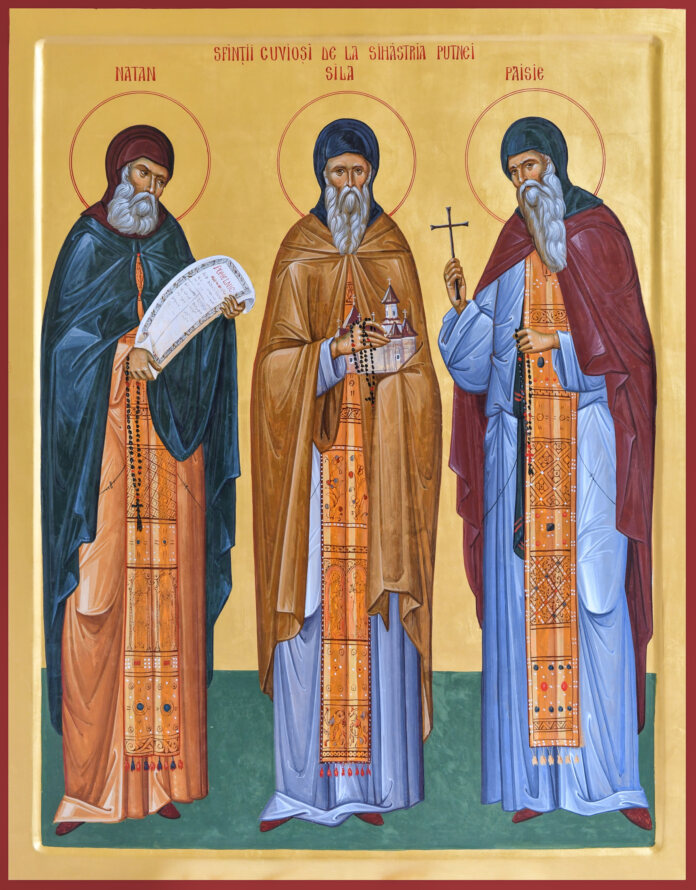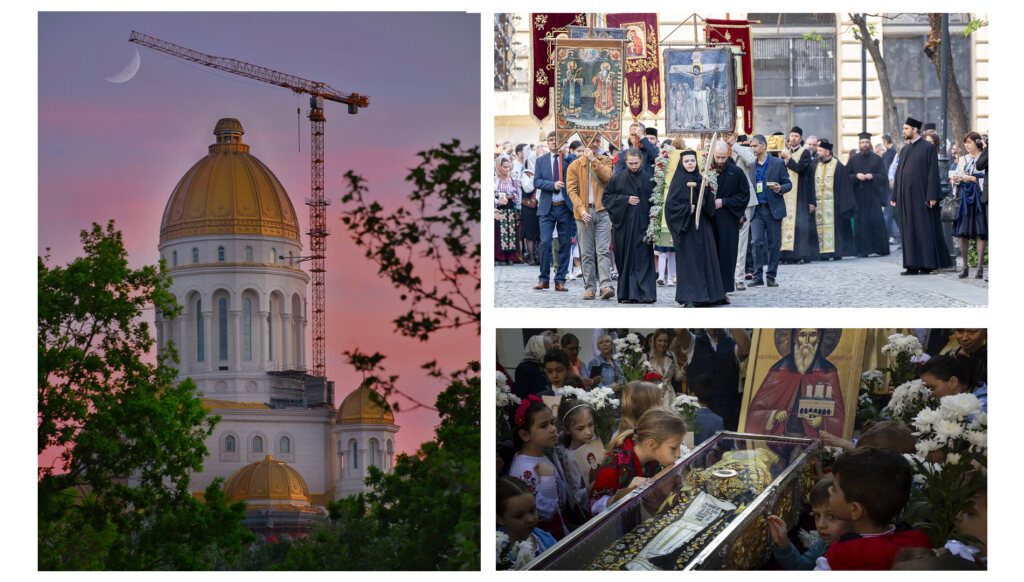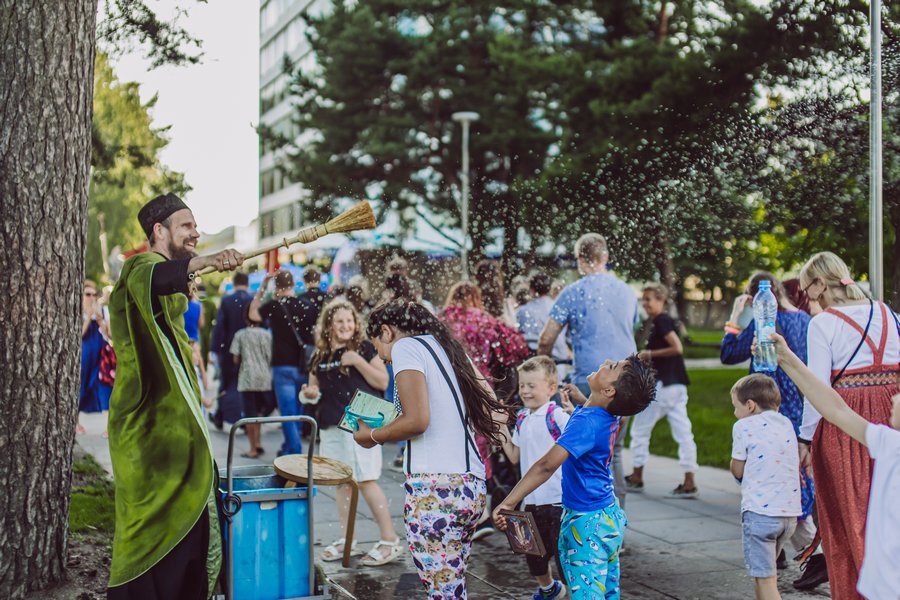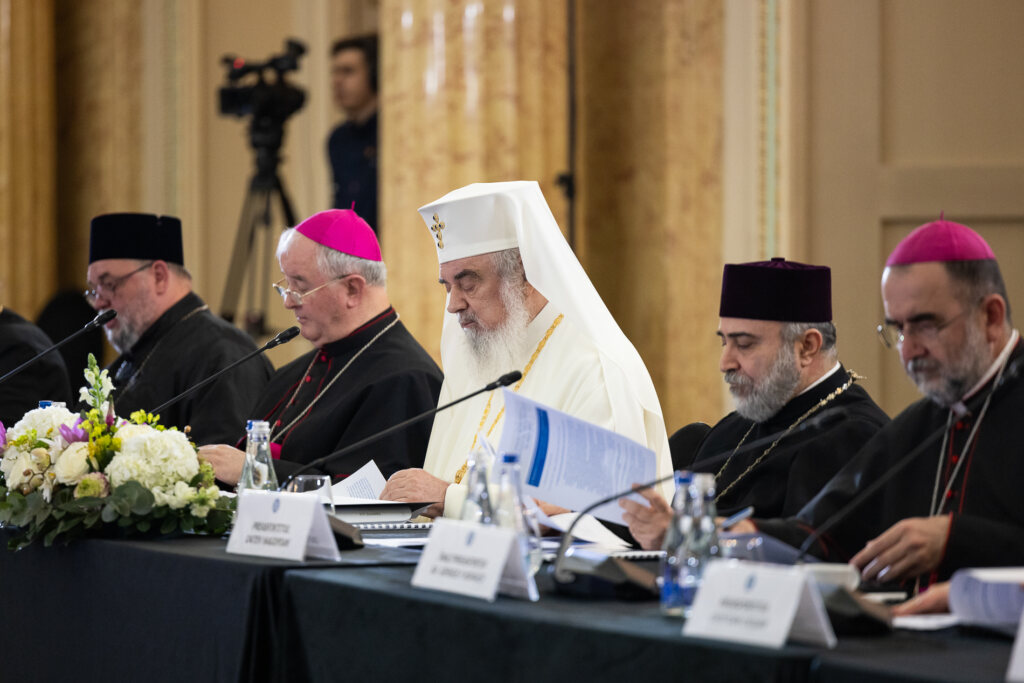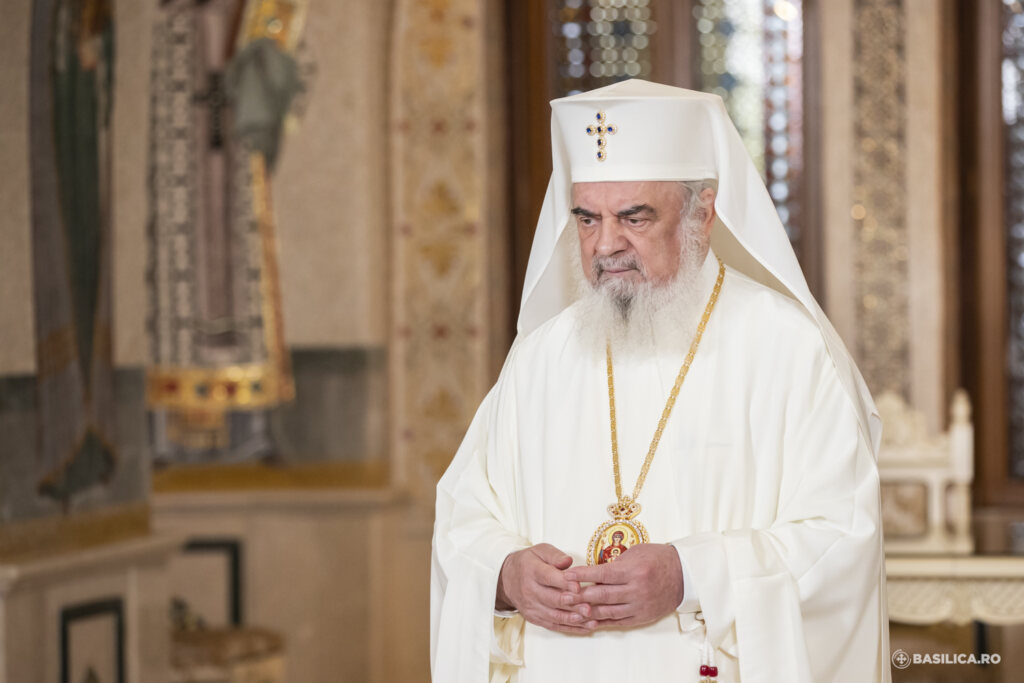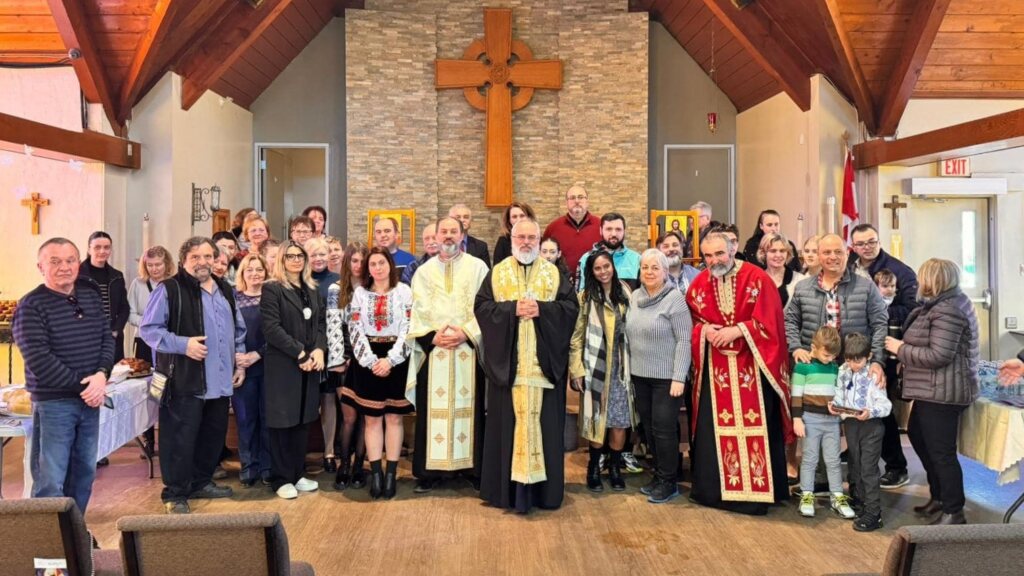Venerable Theodore the Sanctified
Saint Theodore was called “Sanctified” because he was the first in his monastery ordained to the priesthood.
Saint Theodore came from Egypt and was the son of rich and illustrious Christian parents. The yearning for monastic life appeared early in him. Once there was a large party at the house of his parents during the feast of Theophany. The boy did not want to take part in the festivities, grieving that because of earthly joys he might be deprived of joys in the life to come. He secretly left home when he was fourteen and entered one of the monasteries.
Troparion — Tone 1
Dweller of the desert and angel in the body, / you were shown to be a wonder-worker, our God-bearing Father Theodore. / You received heavenly gifts through fasting, vigil, and prayer: / Healing the sick and the souls of those drawn to you by faith. / Glory to Him who gave you strength! / Glory to Him who granted you a crown! / Glory to Him who through you grants healing to all!
Hearing about Pachomius the Great, he burned with the desire to see the ascetic. Saint Pachomius received the young man with love, having been informed by God beforehand about his coming. Remaining at the monastery, Saint Theodore quickly succeeded in all his monastic tasks, particularly in the full obedience to his guide, and in his compassion towards the other brethren.
Theodore’s mother, learning that he was at the Tabennisi monastery, came to Saint Pachomius with a letter from the bishop, asking to see her son. Saint Theodore did not wish to break his vow to renounce the world, so he refused to meet with his mother.
Seeing Saint Theodore’s strength of mind and ability, Saint Pachomius once told him to instruct the brethren on Holy Scripture. Saint Theodore was then only twenty years old. He obeyed and began to speak, but some of the older brethren took offense that a new monk should teach them, and they departed. Saint Pachomius said to them, “You have given in to the devil and because of your conceit, your efforts will come to naught. You have not rejected Theodore, but rather the Word of God, and have deprived yourselves of the Holy Spirit.”
Saint Pachomius appointed Saint Theodore as overseer of the Tabennisi monastery, and withdrew to a more solitary monastery. Saint Theodore with filial love continued to concern himself over his instructor, and he looked after Saint Pachomius in his final illness, and when the great abba reposed in the Lord, he closed his eyes.
After the death of Saint Pachomius, Saint Theodore directed the Tabennisi monastery, and later on he was at the head of all the Thebaid monasteries. Saint Theodore the Sanctified was famed for his holiness of life and a great gift of wonderworking, and he was well known to Saint Athanasius, Patriarch of Alexandria. Saint Theodore reposed in his old age in the year 368.
Tr by oca.org
Ven. Silas, Paisios and Nathan from Sihăstria Putnei
Venerable Saints Silas, Paisios and Nathan have lived in the 18th century in Putna Hermitage, a place of asceticism and quietness where the most elevated monks of Putna retreated.
Venerable Silas was born in 1697 in Botoşani region, from Orthodox parents John and Joana. Being very young, he entered as a novice in Orăşeni Skete (Cristeşti village, Botoşani county), where from, in 1714, when he was 17 years old, he went to Putna Hermitage, where he was received and then became a monk by the decision of abbot Theodosius.
After the abbot has fallen asleep into the Lord, the new spiritual father of the skete, abbot Dosoftei, decided to ordain Silas as deacon and priest, and soon to receive the great schema. As a disciple and assistant to abbot Dosoftei, hieroschemamonk Silas took care for over 30 years of all the needs of the monastic community, participating at the same time in church services and observing his daily pravila (set of monastic rules) in his cell. In the autumn of 1753, after abbot Dosoftei has fallen asleep into the Lord, Venerable Silas was appointed abbot by Holy Metropolitan Jacob Putneanul of Moldavia.
As the spiritual father of the community, he renewed the spiritual life of Putna Hermitage and, as a good administrator, with the blessing of Metropolitan Jacob, he built a new stone church dedicated to the Annunciation, which he adorned with all necessary and built a new refectory and some cells.
Renowned as father confessor and spiritual adviser, Venerable Silas was appreciated not only by simple faithful, but also by Moldavia’s ruler princes Constantin Cehan Racoviţă and Grigorie Calimachi, as well as by senior governors, abbots and hierarchs, guiding them all wisely on the path to salvation. Under the guidance of the holy abbot, the monks of the hermitage devoted themselves to the calligraphy of sacred manuscripts that included religious services and important writings of the Holy Fathers.
Among his disciples, the best known is bishop Dosoftei Herescu of Rădăuţi. Venerable Silas spent the last years of his life in many difficulties and hardships, following Bukovinaʼs annexation by the Habsburg Empire in 1774, and the limitations imposed by the new regime. The skete was not able to provide enough food for the monks and was forced to borrow money and foodstuff. Knowing his imminent earthly end, Venerable Silas appointed Venerable Nathan in charge of Putna Hermitage, then asked for forgiveness from everyone.
On 23 April 1783, after nearly 70 years lived in Putna Hermitage, Venerable hieroschemamonk Silas has fallen asleep in peace into the Lord, Whom he so much loved and served all his life.
Venerable Paisios was born in 1701 and entered into the monastic life early in his youth. For his worthiness, he was ordained deacon, then priest, and became abbot at Saint Elijah Monastery from where he went to Râşca Monastery.
After a while, he went to Putna Hermitage Skete living in great humbleness. Although he was not abbot at Sihăstria, he was fervently praying, supporting all in the Orthodox faith, especially during the time of foreign rule. He has also received from God the gift of prophecy that was added to other virtues which led him to be honoured by all as a great spiritual father.
Together with abbots Silas and Nathan he witnessed the hardships of the years of Austrian rule, but he proved to be a zealous ascetic. He passed away in peace on 16 December 1784.
Venerable Nathan was born in 1717, in Paşcani town. He was first dweller and ecclesiarch at Putna Monastery, where he was ordained deacon and then priest.
Eager for more prayer and quietness, he withdrew at Putna Hermitage, where he received the great schema with the name Nathan. Venerable Nathan was known as a very skilful father confessor, being the spiritual father also to the great metropolitan Jacob Putneanul. At the same time, the hermit dwellers together with the faithful honoured him as a true father and preserver of good Orthodox ordinances.
He was also devoted himself to the calligraphy of sacred manuscripts and the composition of the founders’ memorial lists. In 1781, he was appointed abbot by Venerable Silas, who was preparing himself for his falling asleep into the Lord. Although at an old age, hieroschemamonk Nathan continued his predecessor spiritual work with zeal and sacrifice, leading the congregation entrusted to his pastoral care for three and a half years, although shortages and hardships were growing because of Habsburg occupation.
At the end of a life dedicated to God, in poverty and purity, after supporting with great patience and incessant prayer the heavy burden of diseases, Venerable hieroschemamonk Nathan has fallen asleep into the Lord, the day after the feast of the Nativity of Jesus Christ, on 26 December 1784.
Shortly after the passing away of the three Holy hieroschemamonks, Putna Hermitage Skete was closed by the Austro-Hungarian administration, which had occupied the northern parte of Bukovine.
After more than 200 years, at the beginning of Lent in the year 1990, a monk from Putna, secluded in the place of the former hermitage, saw a heavenly light above the narthex of the old church ruins, light that surrounded the church then vanished.
Shortly thereafter, on 24 April 1990, when the rebuilding of the hermitage begun, the graves of the three Venerables, Silas, Paisios and Nathan, were found in the narthex of the old church, in which their yellow as wax bones, spreading good scent, were laying. In the years that followed, many miraculous healings were performed at the shrine with the relics of these Venerable fathers.
Therefore, celebrating the 550th anniversary of the founding of Putna Monastery and 20 years since the re-consecration of the old church of Putna Hermitage, at its meeting of 6-7 June 2016, the Holy Synod of the Romanian Orthodox Church decided the enlisting among the Saints of Venerables Silas, Paisios and Nathan from Putna Hermitage, with their feast day on 16 May. Through their holy prayers, Lord Jesus Christ, our God, have mercy on us. Amen.
Troparion – Tone 4
You have shown yourselves confessors of true faith and defenders of the Romanian people, O, Holy Venerable Fathers Silas, Paisios and Nathan. Your received heavenly gifts labouring through fasting, vigil and prayer. Pray to Christ God to save our souls.
